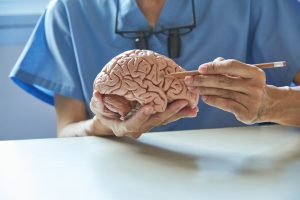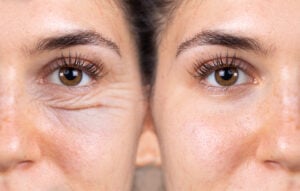Fainting is a temporary loss of consciousness which can be frightening to experience or witness.
It’s how the body reacts to environmental triggers like pain and emotional distress – and in most cases, although it can appear alarming, isn’t always cause for concern.
However, if someone experiences multiple episodes of fainting, complaints of violent shaking, loss of bladder control, or long periods of blackout, their condition should be investigated by a physician who can decide if treatment is necessary.
In some cases, it’s important other people witness the episode to determine if help is needed. So, in the event it happens to you or someone close to you, here are three main reasons why someone might lose consciousness:
1. Syncope
When there is a drop in blood supply to the brain, the body collapses, which is known as syncope.
There are a number of reasons this could happen, with the most common being in response to heart problems (cardiac syncope), triggers like pain or emotion (neurocardiogenic syncope), or abrupt changes in position (postural hypotension).
Right before fainting, some people can feel lightheaded and nauseous, hear a ringing in their ears and start sweating, which is called presyncope.
Presyncope is exactly how it sounds: the precursor to syncope, which warns the patient that they are about to faint.
If you or someone around you displays these symptoms, it’s important to take action to prevent any injuries which may be caused by a sudden loss of consciousness. You can alleviate this danger by lowering the head to the knees to improve blood flow to the brain, or by taking a drink of water.
2. Epilepsy
Unusual electrical activity in the brain causes seizures, and having repetitive seizures is called epilepsy.
People diagnosed with epilepsy are unaware of their surroundings when they are seizing, which is why asking family members or witnesses what happens during an episode is important.
During such events, the following questions are useful to gather diagnostic information:
- Did you notice body stiffness or violent shaking during the seizure?
- Did the seizure occur suddenly, or was it gradual in onset?
- Did hallucinations occur?
- Was bowel or bladder control lost?
- Was there anything specific that triggered the episode?
These questions also help identify the type of seizure and brain lobe affected, so that medical professionals can apply management techniques tailored to each individual.
3. Psychogenic Blackouts
Sometimes called ‘pseudo’ seizures, psychogenic blackouts mimic a seizure but are not caused by abnormal brain activity.
Common in periods of stress like losing a job, going through a divorce, trying to meet project deadlines, or when thinking about painful memories, these non-epileptic seizures occur because the brain ‘shuts down’ during periods of extreme distress.
Psychogenic blackouts last longer than epilepsy or syncope, but the recovery is quick. A key differential is that the eyes remain closed the entire time, while they remain open during syncope and epileptic seizures. While brain scans can be helpful for epilepsy diagnosis, they aren’t in the case of psychogenic blackouts
What to do if someone faints
According to the NHS, if you or someone around you feels like they’re about to faint, you should:
- Sit with a bowed head or lie down. This will stop the blood from pooling in your legs as a result of gravity and will improve blood supply to the brain.
- Drink water or eat something. A little boost could be the difference between staying conscious and falling to the ground.
- Take deep breaths and remind yourself that you’re going to be okay.
And, if someone around you faints, you should:
- Keep an eye on their pulse and remain calm – they will eventually come around.
- Lay them down straight, with their legs raised higher than their head. This action helps regain consciousness within a minute’s time.
- Do not try to make them drink or eat, or place anything in their mouth, as it could lead to them choking.
- Wait with them until they wake up. If they haven’t regained consciousness within a minute, contact your local emergency services for assistance.
What to do if someone experiences a seizure or psychogenic blackout
Unlike periods of fainting, most seizures can be recognized by stiffness and jerking movements in the body.
If you notice someone displaying those symptoms, the NHS advises you:
- Support their head with something soft to avoid head injuries.
- Help them breathe by loosening clothing around their neck.
- Do not give them anything to eat or drink.
- Only consider moving them if they are at risk of getting hurt, like by cars on the road, or a large crowd.
- Time the length of the seizure.
- Try to identify which body parts are involved, if there are eye movements or incontinence.
- Call your local emergency services if the seizure doesn’t stop after 5 minutes or the person isn’t regaining consciousness.
- When the person recovers, lay them on their side. This is known as the recovery position.
What if it’s happening to me?
It can be disconcerting visiting the physician’s office with blackout or seizure-related symptoms for fear of what might be diagnosed, but it’s the best way forward if you’re experiencing repeated episodes.
Family doctors, or those working in emergency clinics, may consult a neurologist – doctors that specialize in matters of the brain – or a heart specialist for an expert opinion. This is entirely normal and ensures you will get the best advice for your condition.
After taking a detailed history from you, the medical professional may send for some tests to be done before making a diagnosis. These can commonly include:
- Electrocardiogram: Anyone who experiences recurrent blackouts will need to get an electrocardiogram (ECG) done to rule out heart attacks and other heart diseases.
- Blood tests: Blood tests like CBC (complete blood count), UCE (urea, creatinine, electrolytes), and blood glucose will help to reveal nutrient deficiencies and toxic substances. If these results are normal, more specific testing will be done.
- Tilt table test: Tilt table tests are useful for diagnosing syncope. During a tilt table test, the patient will be asked to lie down on a table, secured to it using belts. The table will then be moved from a horizontal position to a vertical position, while blood pressure and heart activity are monitored the entire time. A large drop in blood pressure will bring on the symptoms of presyncope and might even cause a fainting episode.
- Electroencephalogram: An electroencephalogram or EEG records the brain’s electrical activity in the form of a graph. EEGs may show abnormal spikes if a person has epilepsy, but that is not always the case. Some EEGs may even be done while sleeping to look for changes over a period of time.
- Brain scans: Some doctors may also get an MRI or CT scan done to rule out tumours, brain bleeds and strokes.
The road to recovery
Not all blackouts require treatment, but your medical professional will be able to advise management techniques for those that do, which will depend entirely on the symptoms being experienced and the results of any subsequent testing.
The types of management can range from:
Syncope
- A diagnosis of syncope, for example, will require medications for adjusting blood pressure, or pacing of the heart with a pacemaker.
Epilepsy
- For epilepsy, anti-epileptic drugs will help achieve control of seizures, but precautions with driving have to be considered, and triggers must be avoided.
Psychogenic blackouts
- In the case of psychogenic blackouts, psychiatric evaluation is invaluable and will help identify causes of stress, which improve over time with coping mechanisms and therapy.
In any situation, it’s always advised to consult your local physician for more information and expert advice.
Physicians will be able to provide valuable support and guide the course of treatment needed to achieve the best health outcomes for you or anyone experiencing these symptoms, helping to bring back a sense of normality to day-to-day life if blackouts or seizures have been taking over.











